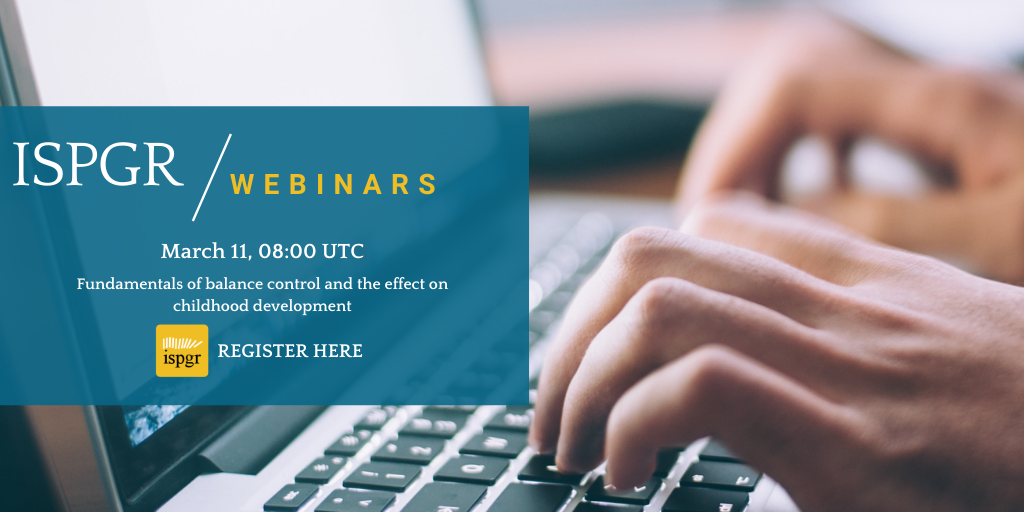Fundamentals of balance control and the effect on childhood development
March 11, 2021, 08:00 UTC
Balance is a crucial aspect of motor development. Achieving, maintaining and restoring balance is a challenge as this is the result of the interaction between multiple systems in the body (e.g. the nervous and musculoskeletal system), a certain environment (e.g. playground) and a given task (e.g. jumping). Balance control is needed for all activities in daily life, such as running, swimming or ball games. In paediatric populations such as developmental coordination disorder or cerebral palsy, balance deficits severely affect everyday functionalities. A thorough understanding of the underlying control mechanisms as well as obtaining insights into the developmental course of balance and motor performance is paramount for unravelling the potential of improving balance through rehabilitation. The objective of this ISPGR session is to provide an overview of the current state of the art regarding evaluation of balance, motor performance and underlying control processes, with specific attention to developmental changes and rehabilitation potential in paediatric populations.
The symposium will consist of keynote presentations, invited speaker presentations and live Q&A periods over a duration of 2 hours.
Register now to participate in this free online symposium.





